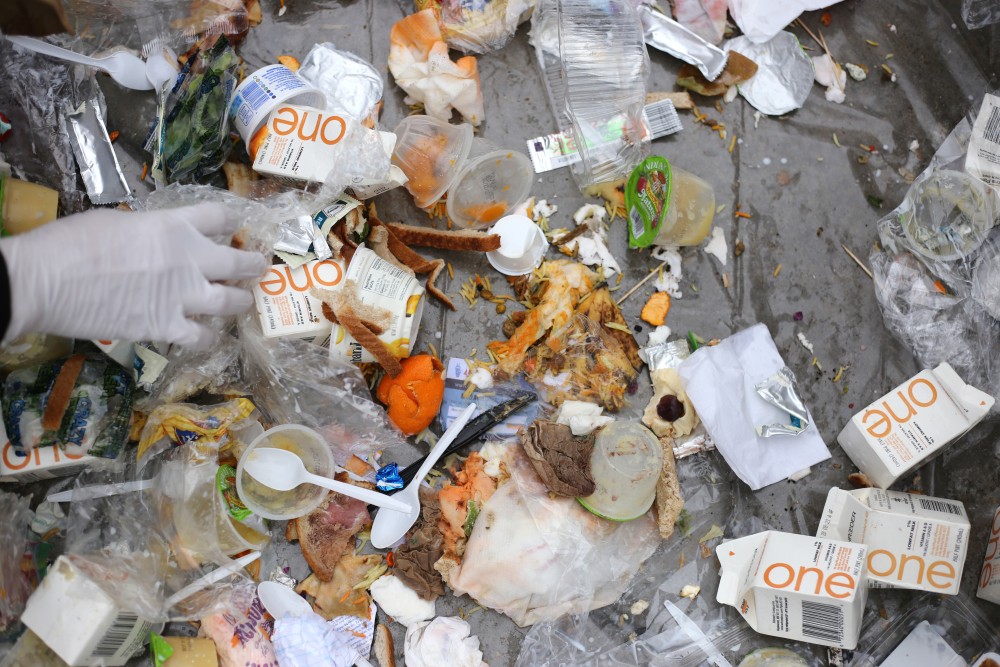A semester after composting was established in University of Minnesota dorms, multiple groups on campus are working to expand compost bins to every heavily-trafficked building on the Twin Cities campus.
The Minnesota Student Association, the University’s Recycling Program and the Office of Sustainability are collaborating to ensure every University building that produces a substantial amount of waste has access to compost bins.
Faculty at the University’s Como Recycling Facility are continuing the work of Dana Donatucci, who retired last year. He jump-started the University’s efforts to become zero-waste and sustainable.
Composting was expanded to University dorms last semester, but the goal now is expansion to all buildings on the Twin Cities campus where composting is applicable, said Como Recycling Facility’s organics rollout coordinator Allison Sawyer.
The process has included phasing out disposable food service ware at campus dining locations and at many events, including Greek life events, on campus. Now, the main goal is to expand central composting bins to the University’s academic buildings. These centralized bins, which are sorted into different types of waste, put more responsibility on people who are throwing something away, which increases recycling waste because composting is more accessible, said Todd Tanner, the reuse program coordinator with Facilities Management.
Tanner said studies have shown that providing a choice to compost holds people more accountable, making them more likely to compost.
Composting has been a longtime goal for MSA, with a recent focus on continuing to make it accessible in dorms. Sai Powar, MSA’s sustainability committee chair, said MSA is not directly involved with specifics of the expansion right now, but they hope to start educating students about what can and cannot be composted soon.
The Como Recycling Facility has a current goal of expanding composting to eight buildings every month until the approximately 100 academic buildings have accessible composting, Sawyer said. The recycling center is also coordinating with custodial services, building tenants and the Office of Sustainability to best implement the program.
Tanner and Sawyer emphasized how unique this sustainability goal is in comparison to other establishments across the nation.
“As far as we know, we are the only institution anywhere near our size that’s attempting to do this campus-wide,” Tanner said.
The recycling center makes informational signs and has information online to instruct students about proper composting and recycling. Tanner emphasized how important it is to educate students about composting at universities.
“Universities, they really do establish behaviors in the students … that can last the rest of their lives,” Tanner said.
Student groups are also speaking up about the importance of composting. Environmental Student Association President Jessica James said the group aims to educate peers and hold discussions about sustainability. James said their focus is shifting to further understanding composting and promoting zero-waste events as well.
She also emphasized her personal efforts to compost and what changes she has seen during her time at the University.
“Within the dorms and many apartment complexes, it’s really difficult to [compost]. … I think MSA really pushing for it in a lot of the facilities around campus is great,” James said. “It’s something I’ve seen change since I first started coming to the [University].”








